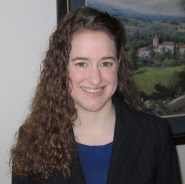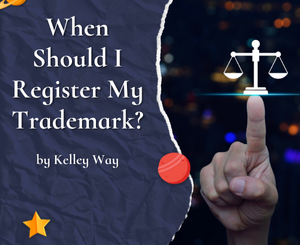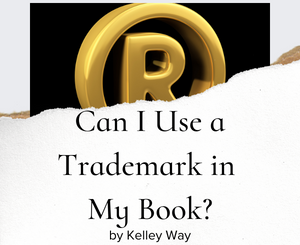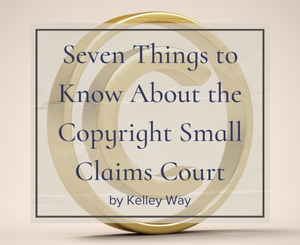Licensing for Authors
 Welcome to our regular column on literary law. Today we focus on licensing from our monthly guest columnist, Kelley Way, a lawyer specializing in literary law. If you have general questions for Kelley on licensing or other aspects of literary law, be sure to comment below. Thanks!
Welcome to our regular column on literary law. Today we focus on licensing from our monthly guest columnist, Kelley Way, a lawyer specializing in literary law. If you have general questions for Kelley on licensing or other aspects of literary law, be sure to comment below. Thanks!
PS. A list of books on literary law can be found here.
PPS. For more on copyright, visit the U.S. Copyright Office.
And now for a bit of necessary legalese: Please note that this article does not constitute legal advice, and that an attorney-client relationship is not formed by reading the article or by commenting thereon.
***
You know you’ve hit it big when someone approaches you, asking for a license to use your work. And you also know (or at least you should, if you’ve been reading my articles) that if you’re borrowing heavily from someone else’s work, you should really get a license from them if you don’t want a cease and desist letter from their lawyer. Those are not pretty. Even if they’re polite, they still use scary words like “lawsuit” and “infringement.”
But what exactly is a license? And what do you want to look for if you’re negotiating one?
To put it simply, a license is a contract, giving someone permission to do something: in this case, to borrow from your work. Depending on how big a smash your work is, or conversely, how badly you want publicity, you may or may not want to charge a fee for the license. Generally, there are three provisions you want to cover (besides the money issue):
- Exclusivity
A license can be either exclusive or non-exclusive. An exclusive license means that the borrower (the licensee in legalese) is the only person who’s allowed to borrow from the work. A non-exclusive license means just what you think it does: the licensee still gets permission, but you’re free to grant another license to any other hopeful person who shows up at your door. Non-exclusive licenses tend to be cheaper than exclusive ones, and they tend to be the norm, unless it’s something like a movie license, where the value of the licensee’s work would decline with multiple licenses. Plus, if you’re the licensee and the work has multiple copyright holders, you have to contact every single one of them to get an exclusive license, and you only have to contact one for a non-exclusive one.
- Term
The term (length) of the license doesn’t have to be in there, but it’s not a bad idea to cover it, particularly if you don’t want the licensee to have permission to use the work forever (or at least, until the copyright expires). When not stated explicitly, the license is indefinite. The owner of the borrowed work (or licensor), can revoke the license, but that can be a hassle, and if you foresee a time when you’ll want to take the license back, it’s better to just have a provision covering that in the license.
- Territory
It’s a good idea to specify how far your license extends. It can cover a specific geographic region, or the United States, or worldwide. The license can even be exclusively for Internet publication. How far the rights extend factor into the price; the more the licensee wants, the more the licensor can charge. Be aware, if you’re the licensee, that a worldwide license also requires permission from all copyright holders of the work, so it’s more work in addition to more expense.
Beyond what terms to include in the contract itself, the prospective licensee should also be as specific as possible when contacting the licensor to ask for permission. It’s much easier for the licensor to decide whether to give permission, and at what price, if he or she knows exactly what rights the licensee wants (see my previous article, “Copyright 101”), what part of the work the licensee wants to use, and exactly how and where the licensee plans to use the work.
That’s the highlights for granting and requesting licenses. If you have insightful comments, general confusion, or acute hysteria, you know where to reach me.
***
ABOUT THE AUTHOR
 Kelley Way was born and raised in Walnut Creek, California. She graduated from UC Davis with a B.A. in English, followed by a Juris Doctorate. Kelley is a member of the California Bar, and an aspiring writer of young adult fantasy novels. She can be contacted at KelleyAWay@gmail.com. You can contact via your comments below or email her directly to set up a consultation.
Kelley Way was born and raised in Walnut Creek, California. She graduated from UC Davis with a B.A. in English, followed by a Juris Doctorate. Kelley is a member of the California Bar, and an aspiring writer of young adult fantasy novels. She can be contacted at KelleyAWay@gmail.com. You can contact via your comments below or email her directly to set up a consultation.






